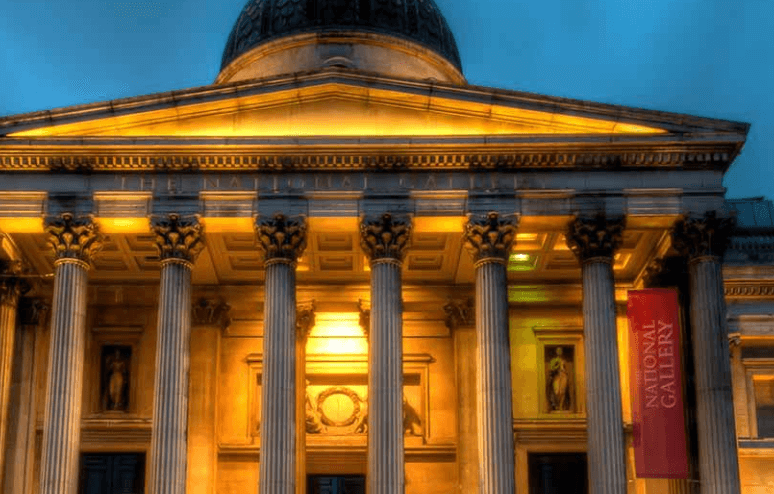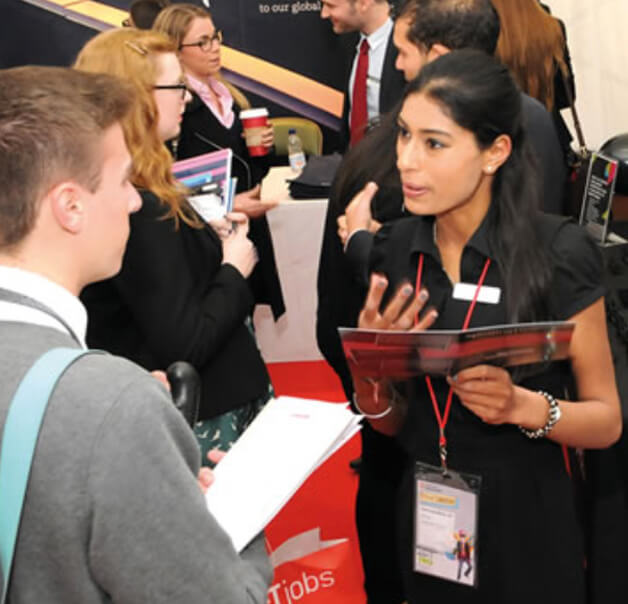
MA, MSc, PGDip, PGCert, Short course - one module, by distance learning
MA, MSc, PGDip, PGCert, Short course – one module, by distance learning, 4 months-2 years
This is for you if… you want a flexible, part-time course that allows you to develop skills and expertise in addressing contemporary social issues in museums and galleries.

Course Description
In the 21st century, leading museums, galleries and heritage practice began to make use of socially engaged approaches. This course will examine the role of museums and practitioners in shaping society’s understandings of contemporary issues, upholding values of inclusivity and accessibility, and ensuring that museums benefit their communities. Choosing to study Socially Engaged Practice in Museums and Galleries will give you access to leading research and practice on the impact that museums and galleries can have on advocating for social justice and human rights, and how they might better explore and address the contemporary issues that face our societies.
This course is based on research that has been undertaken over the last 15 years by the Research Centre for Museums and Galleries (RCMG) at Leicester, and draws on broader global shifts in practice. It will introduce you to cutting-edge examples of socially-driven professional practice and challenge you to think deeply about the role of culture in society and the characteristics of socially purposeful museums and galleries.
Over the course, you will engage critically and creatively with areas such as:
- partnership working
- participatory practices
- learning and education
- design and experience
- visitor studies and audience research
- leadership at all levels of an organisation
- how socially engaged practice can be embedded into the work of museums and galleries
You will gain a deeper understanding of the historical, current and emerging debates, theories, issues, techniques and practice in order to effectively develop and advocate for socially engaged practice in museums, galleries, and similar organisations. The course offers a platform to explore and experiment with ways of maximising the impact that museums and galleries can have on the wellbeing of communities, on civil debates around controversial topics, and on the building of fairer and more equal societies.
The course is delivered in a variety of ways, including online lectures, seminars, and tutorials, course readers which are posted to you, and discussion activities. There are also optional face-to-face sessions held each year. The programme is designed to fit around your existing commitments, and is sympathetically structured to allow you to break up the work into manageable chunks and focus on one assignment at a time.
The course is led by Professor Richard Sandell, a world-leading expert on the social role of museums. Richard’s research focuses on the potential for museums to support social justice and equality. He is especially interested in the emergence, over the past two decades, of an ‘activist museum practice’ (Sandell and Dodd 2010) and in exploring the social agency of museums and, in particular, their potential to tackle prejudice and engage audiences in debates pertaining to contemporary human rights.
You will receive high quality support from your module tutors and a personal tutor throughout your studies. In addition, we deliver one module of the course in partnership with a leading national museum service.
If you have any questions about this course, join us for a live online chat with academic tutors and admissions staff.
What’s the difference?
If your dissertation concerns a science collection or museum, or if the nature of your investigation is ‘scientific’, you can receive a Master of Science (MSc) degree instead of a Master of Arts (MA) degree.
If you would like to obtain a Postgraduate Diploma you will complete all of the modules but not the dissertation.
If you would like to obtain a Postgraduate Certificate you will complete two modules of your choice.
You can also choose to complete one module or build up to a qualification over time.
Key Facts
Start date:
February, May, August and November each year
Department:
School of Business
Contact:
- 0244565928 / 0244176389
- or visit our resource centre at the Ashia Court, 7 Dr. Isert Road, North Ridge, Accra
Why Leicester?
Museum Studies at Leicester is a world-leading hub for research, teaching, thinking, debate, and practice.
This degree offers maximum flexibility for students wishing to take anything from one module to a whole Masters degree, which can be completed in a minimum of two years or built up module by module over a longer period.
You can take advantage of our network of 20 associate tutors who are all museum professionals working in the sector.
Course Structure
Module
This is a very flexible programme with a range of qualifications on offer, from a Postgraduate Certificate (if you complete two modules of your choice), and a Postgraduate Diploma (four modules), to a full MA or MSc (four modules plus a dissertation). If you would like to build up to a qualification over time in a flexible manner, or wish to take just one of the modules as a taster, you can also opt to register for a single module (4 months part time).
- Exploring Socially Engaged Practice in Museums and Galleries
- Engaging Audiences: Education, Learning and Participation
- Research and Evaluation for Socially Engaged Museum and Gallery Practice
- Project in Practice: Developing Socially Engaged Practice in Museums and Galleries
Plus your Dissertation
Modules shown represent choices available to current students. The range of modules available and the content of any individual module may change in future years.
Additional Information
Key Dates
Application deadline for April 2020 start: 19 March 2020
Application deadline for October 2020 start: TBC
Teaching and Assessment
You will be supported by a dedicated team of academic, tutors and support staff. You will be allocated a personal tutor who can advise you on a range of issues and support you. In addition, for each module you will be allocated a module tutor who is a specialist in that particular field. Your module tutor will support you with academic enquiries as well as your essay plans, marking your assignments and providing you with detailed feedback.
Our flexible learning course has been designed with different learning styles and access requirements in mind. The flexibility in both progressing through the course, and in accessing the material through different formats anticipates a diverse student body and offers choice in how you are taught and assessed.
Time is built into the structure for you to complete assignments and wider reading on areas of particular interest to you, as well as self-directed study visits. Tutorials with experienced museum professionals are available at various points in the course.
You are invited to attend an optional Summer School and a Winter School offering face-to-face teaching, discussions, group activities and the chance to network with fellow part-time learners and staff.
If you are completing a dissertation as part of the MA/MSc course, you will receive four supervisions with your allocated tutor, with support offered between supervisions as and when needed.
Assessment
There are between one and three pieces of assessed coursework for each of the core modules. Together, these form a carefully designed, broad range of assignments including essays, project work, discussions, and presentations as well as practical exercises. Your module tutor will provide you with detailed feedback on each assignment you submit.

Entry Requirements
In recognition of the diverse employment needs of the culture sector, we recognise and credit a range of prior qualifications and experiences.
- Either a first class or second class degree, which can be in any subject area.
- Or be able to demonstrate equivalent skills and aptitudes through the possession of a professional or vocational qualification and/or the accrual of relevant work experiences. Relevant experience can come from a wide spectrum of work or voluntary environments but clear evidence of this experience must be provided.
You should be able to demonstrate a commitment to, or strong interest in, museums, galleries, or other kinds of heritage or cultural organisation.
If you do not have a degree, you will be asked complete an assessment, such as an essay, so as to demonstrate your readiness for postgraduate study. Clear guidance will be provided on assessment criteria. You may also be required to attend an interview.
English Language Requirements
IELTS 6.5 or equivalent. If your first language is not English, you may need to provide evidence of your English language ability.
International Qualifications
Find your country in this list to check equivalent qualifications, scholarships and additional requirements.
Fees and Funding
This is the total course fee. Please note that the fees for our distance learning courses are based on where you will be residing in the world during your studies.
Starting in April 2020
- MA/MSc: £16,700
- PGDip: £14,850
- PGCert*: £7,425
- Short course (one module)*: £3,715
* Other start dates may be available for the PGCert and individual modules. Please contact us for details.
Career Opportunities
Our Museum Studies graduates have been employed in some of the largest and most prestigious museums and galleries worldwide, in addition to some smaller specialist and local institutions. They include:
- National Museums Liverpool
- The British Museum
- The Smithsonian Institution
- Tropenmuseum, Netherlands
- International Council of Museums
- Museum of New Zealand Te Papa Tongarewa
- Greek Ministry of Culture
- Victoria and Albert Museum
- Imperial War Museum
- Guggenheim Museum

Our Career Development Service is here to support you – by email, phone or skype – with advice on interviews, CVs, work experience and more. From registration to Graduation and beyond, they are here to help you reach your professional goals.
| Course | Qualification | Duration | Start Dates | Availability |
|---|---|---|---|---|
| Socially Engaged Practice in Museums and Galleries | MA | 2 years, part-time | April and October each year | Apply Now |
| Socially Engaged Practice in Museums and Galleries | MSc | 2 years, part-time | April and October each year | Apply Now |
| Socially Engaged Practice in Museums and Galleries | PGDip | 18 months, part-time | April and October each year | Apply Now |
| Socially Engaged Practice in Museums and Galleries | PGCert | April and October each year | Apply Now | |
| Socially Engaged Practice in Museums and Galleries | Short course – one module | 4 months, part-time | April and October each year | Apply Now |
